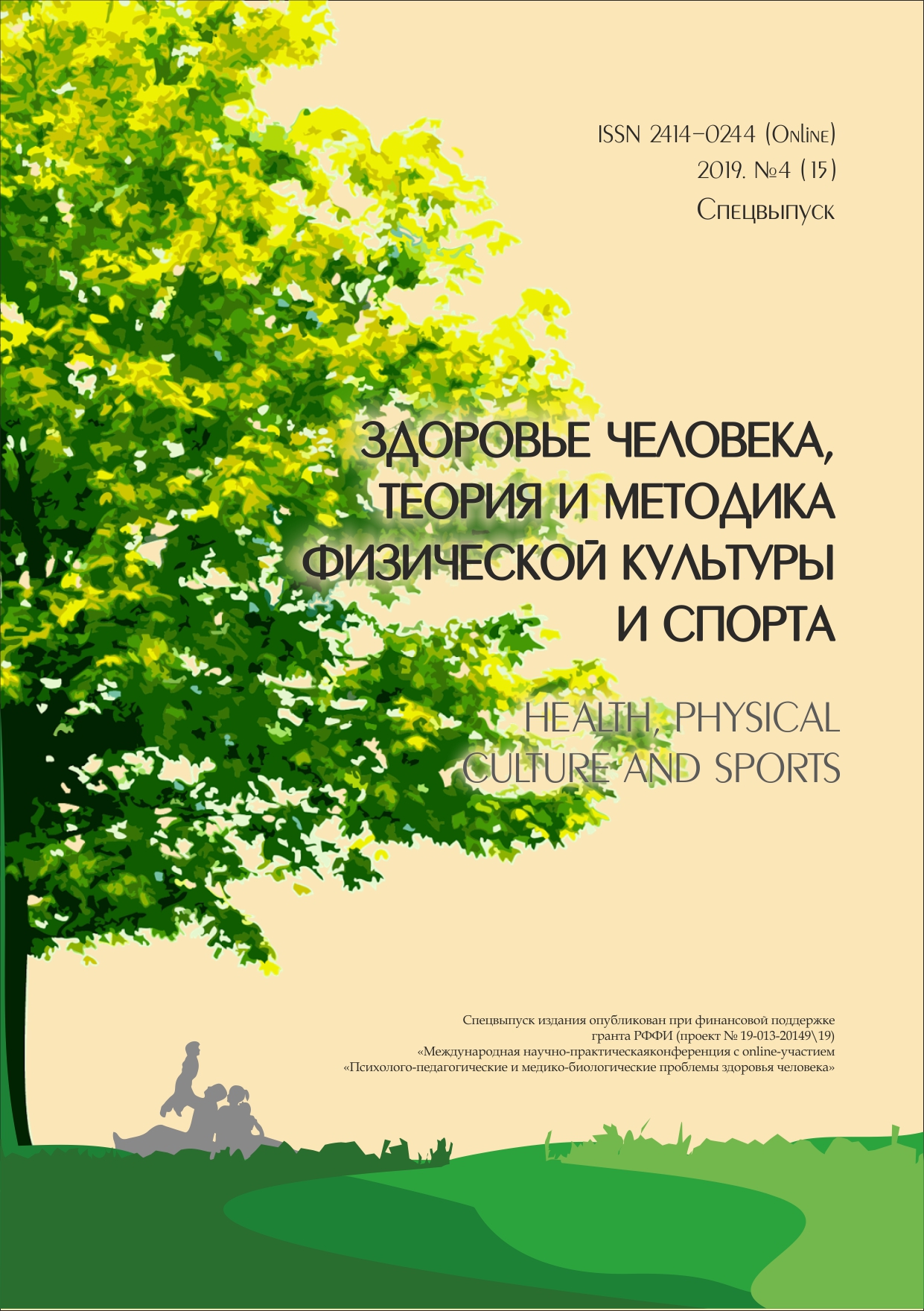THE IMPACT OF NORDIC WALKING ON PREVENTING THE DEVELOPMENT OF BURNOUT SYNDROME
Abstract
This article highlights a little-known “burnout syndrome”. Each person felt a decline instrength, disgust for their own work, or simply incredible fatigue from everything. But not everyonethought that this may be a manifestation of some syndrome, which in the future will negativelyaffect the somatic state of a person. Of course, the manifestation of fatigue should not immediatelybe attributed to the gross manifestation of disorders in the body, but do not underestimate it. Afterall, most often it is small symptoms that speak of a big problem. Among other things, I must saythat many diseases and syndromes are very rejuvenated in our age. For example, many do not evenrealize that emotional burnout can happen not only to an adult, but also to a student. And this is moredangerous than for an adult, because the psyche of young people, as a rule, is not yet stable, weakand not formed. Often, many psychological problems in young people develop into psychosomaticdiseases, which greatly affects later life. Therefore, a study was conducted within the walls of the AltaiState Medical University to identify the syndrome of emotional burnout among students of the firstthree courses. To our great regret, such students were found, in large numbers. Based on this, wedecided to take a control group in which students regularly engaged in Nordic walking outdoors ina pine forest, for a long time. After that, we compared the results of the control group and a groupof students who rarely engage in physical culture, as well as rarely change the field of activity. Thearticle presents tables with the results of both groups for clarity. After that, the contribution of Nordicwalking to the formation of psychological and emotional balance of students, as well as to strengthenthe adaptive capacity of the young body.
Downloads
References
Водопьянова Н. Е. Синдром выгорания: диагностика и профилактика. СПб., 2005. 336 с.
Водопьянова Н. Е. Синдром «выгорания» в профессиях системы «Человек человек» // Практикум по психологии менеджмента и профессиональной деятельности / под ред. Г. С. Никифорова и др. СПб., 2001. C. 175–180.
Бойко В. В. Синдром «эмоционального выгорания» в профессиональном общении. СПб.:Питер, 1999. 105 с.
Гришина Н. В. Помогающие отношения: профессиональные и экзистенциальные проблемы // Психологические проблемы самореализации личности / под ред. А. А. Крылова и Л. А. Коростылевой. СПб., 1997. С. 237–245.
Старченкова Е. С. Психологические факторы профессионального «выгорания». СПб., 2002.357 с.
Фромм Э. Анатомия человеческой деструктивности. М.: АСТ, 2006. 640 с.
Алмазов Б. Н. Психическая средовая дезадаптация несовершеннолетних. Свердловск: УрГУ,2002. 150 с.
Борневассер М. Стресс в условиях труда // Психические состояния: хрестоматия. СПб.: Питер, 2000. С. 195–214.
Кондрашенко В. Т. Девиантное поведение у подростков: диагностика, профилактика, коррекция: учеб. пособие. М.: Аверсэв, 2004.
An author should not normally publish manuscripts describing essentially the same research in multiple journals or publication venues. Such redundant publication is generally considered to constitute unethical publishing behavior, and if discovered may result in a manuscript under consideration being rejected, or a published article being retracted.
Authors of manuscripts reporting on original research should present an accurate account of the work performed, accompanied by an objective discussion of its significance. Underlying data should be represented accurately in the manuscript. The manuscript should contain sufficient detail and references to permit others to replicate the work. The fabrication of results and the making of fraudulent or knowingly inaccurate statements constitute unethical behavior and may be cause for rejection or retraction of a manuscript or published article.





